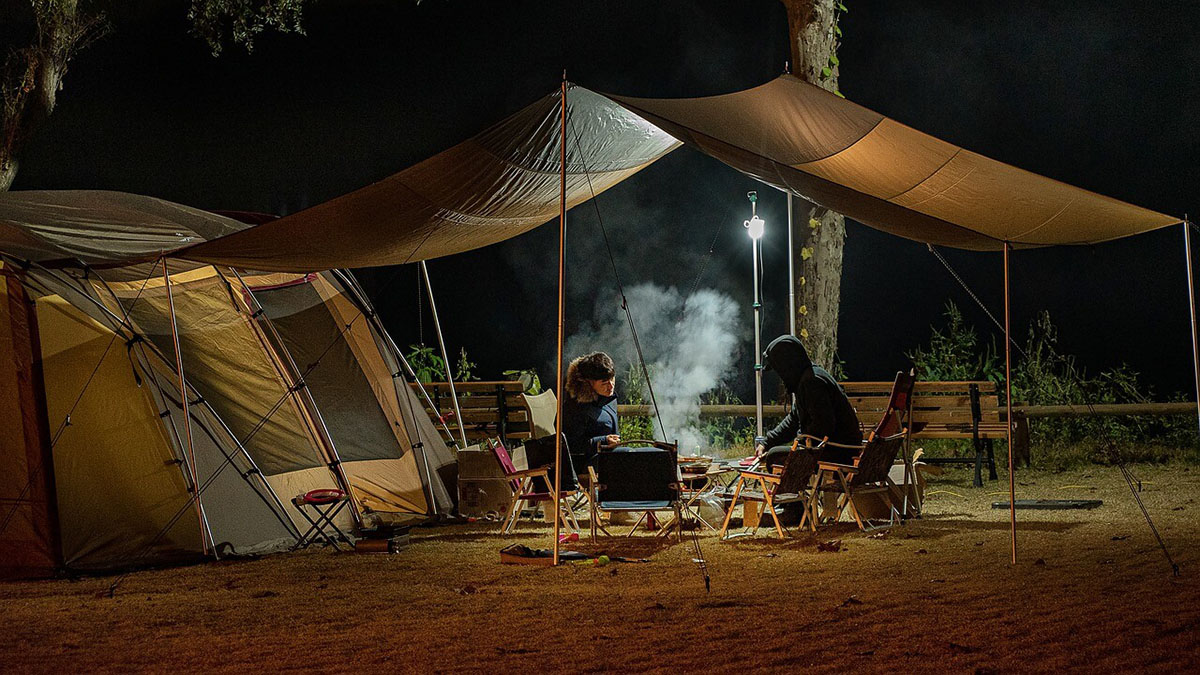The State of Tennessee will soon make it illegal to camp on public property. A new law goes into effect on July 1, 2022. House Bill 0978, and Senate Bill 1610 was originally written in 2021 in response to riots that took place throughout the country in 2020. Those riots hit the Volunteer State hard, particularly in Memphis and Nashville.

Synopsis of the New Illegal Camping Law
Back in 2012, the State of Tennessee passed the “Equal Access to Public Property Act of 2012” (§ 39-14-414), which banned camping on state owned property. The Act was created in response to the “Occupy Nashville” movement in which protesters erected tents on the state-owned War Memorial Plaza.
The Act made it illegal to camp on any state owned property that was not designated for camping. A person can only be charged with violating this act if he or she was informed by an officer and failed to remove themselves and their belongings.
The term “camping” was given a specific definition to include erecting any kind of shelter, or other bedding, as well as the act of sleeping and the act of cooking. Just the act of sleeping on state owned property, qualifies as “camping”.
The Act exempted, however, all state owned campgrounds, or other state properties where camping was allowed.
Expansion of the Act
Fast forward to the Summer of 2020, when rioters across the country began attacking random people, burning and looting businesses, vandalizing cars and property. The Tennessee Legislature responded the following year with a bill designed to expand on the Equal Access to Public Property Act of 2012.
The expansion removes the term, “state owned property” from the Act and replaces it with just “public property”.
Interestingly, the expansion does not define “public property”. However, it does defines “public place” (§ 39-11-106) as any place (within the State of Tennessee) where the public has the right to access. This would include federally owned lands, as well state, county, and city owned lands. This would include all public parks, memorials, buildings, plazas, highways, bridges, rest areas, etc.
However, this new expansion exempts any public property that was already approved for camping purposes. Thus, national forests (boondocking) are exempt, as well as any publicly owned campgrounds. Note that the Bureau of Land Management does not manage any lands in Tennessee.
The Expansion Also Amends the Motor Vehicle Code
Tennessee’s Motor Vehicle Code was also amended by creating a new section that effectively duplicates itself with the above, but specifically names the following public places where camping is now banned…
- On the shoulder, berm, or right-of-way of a state or interstate highway; or
- Under a bridge or overpass, or within an underpass, of a state or interstate highway
Interestingly, this amendment to the Motor Vehicle Code defines camping as any kind of sleeping or cooking, as long as its outside of a vehicle. However, the 2022 expansion of the Equal Access to Public Property Act of 2012 has already banned sleeping of any kind, on any public property.
What About Sleeping Overnight in a Vehicle?
It’s no longer allowed on public property. This is because both the Equal Access to Public Property Act of 2012, along with its 2022 expansion, has a very broad (and lengthy) definition of “camping”. Just the act of sleeping itself, on public property, is illegal.
It does not matter if you are sleeping inside your own vehicle, or any other structure that you own. As long as you placed it on publicly owned property, with the intent of sleeping or cooking, it meets the definition of “camping”…
- Read the original Equal Access to Public Property Act of 2012 to see the exact definition of “camping”, and then…
- Read the 2022 expansion, particularly Section 2, where it changed “state owned land” to “public property”.
What About Sleeping Overnight in a Vehicle in These Other Places?
- Walmarts, Cracker Barrels, and other privately owned parking lots – Yes, as long as its allowed by the owner of the parking lot. This new law does not affect private property.
- Hospital Parking Lots – Yes, as long as its a privately owned hospital. Government owned hospital parking lots, however, is now illegal.
- City and County Parks – If a city or county park had already approved camping on its grounds, then you can still do so. However, any city or county park where camping was not approved, is now a violation of state law.
- Rest Areas & Welcome Centers – No. The Tennessee Department of Transportation had already banned overnight parking at its rest areas and welcome centers. See “Tennessee Rest Area Rules“.
- National forests in Tennessee – Yes, it’s allowed. This is because both U.S. Forest Service properties in Tennessee (Cherokee National Forest, and Land Between the Lakes NRA) have already approved dispersed camping throughout their lands.
- Parking along the side of a street – No, it was already illegal on state owned property, and now it’s illegal on all public property. The original Equal Access to Public Property Act of 2012 had already qualified sleeping on state owned property as meeting the definition of “camping”, and did not distinguish between sleeping inside vehicle or outside. Now with the 2022 expansion, sleeping on any public property meets the definition of camping.
- Boondocker’s Welcome and Harvest Hosts – Yes, because both Boondocker’s Welcome and Harvest Hosts are limited to camping on privately-owned land, not public.


GOOD TIME TO MOVE OUT TO CALIFONE OR FLORIDA
So public lands no longer serve the desires of the public. Smooth move Tennessee—volunteer state my a**.
So much for that camping trip to the Tennessee side of the Smoky Mountains we were planning. Will have to shift to the NC side.
Oh, thank god, a “rest” area! NOPE! Drive while dangerously exhausted or get arrested. So stupid, TN.